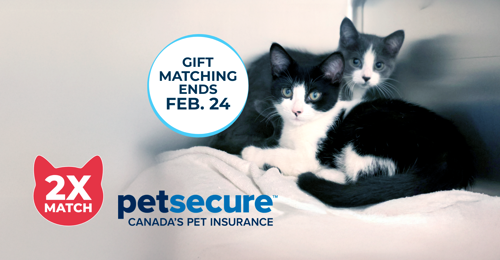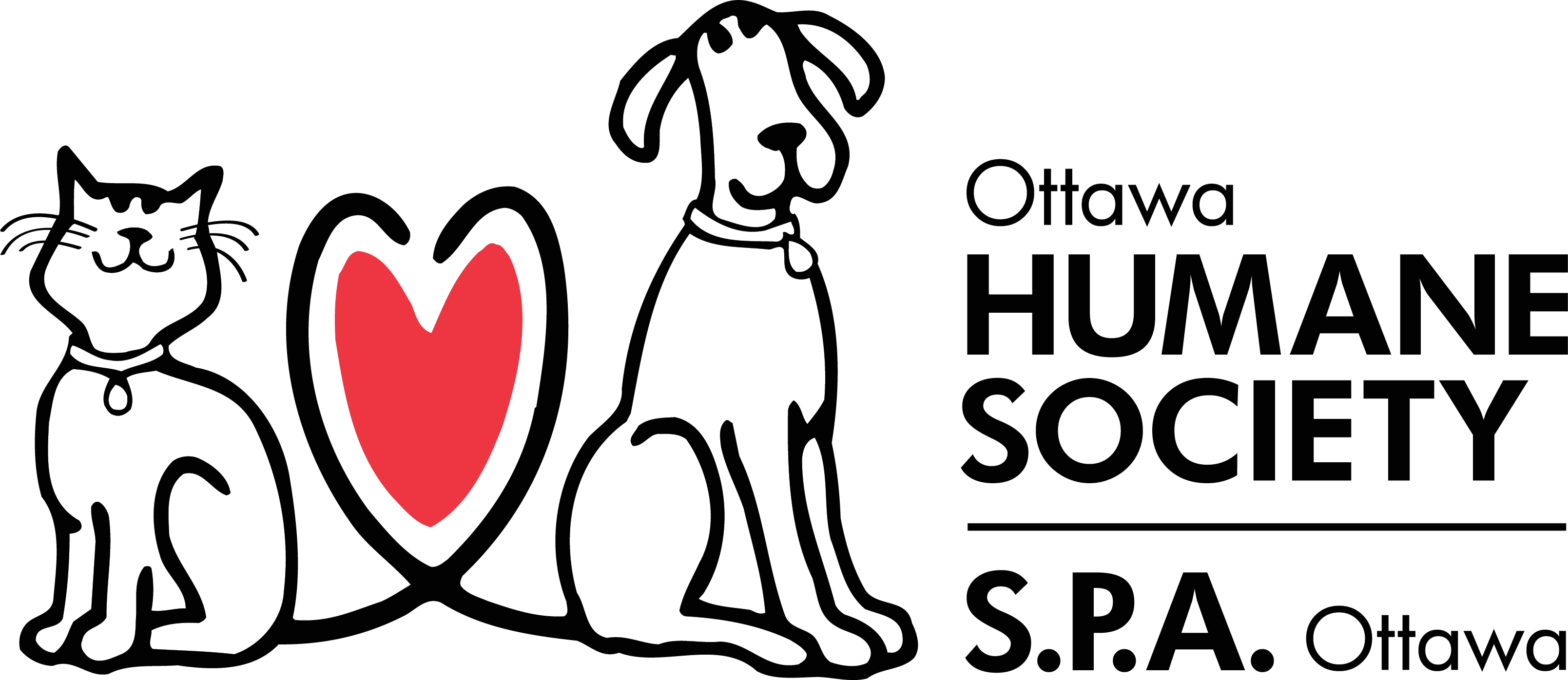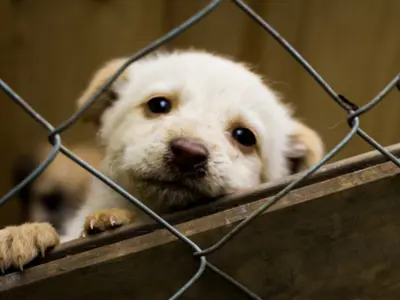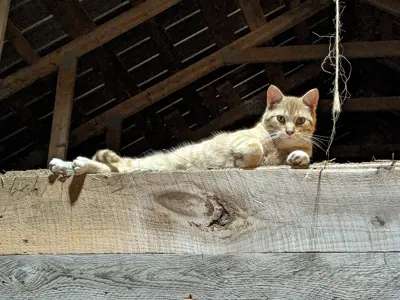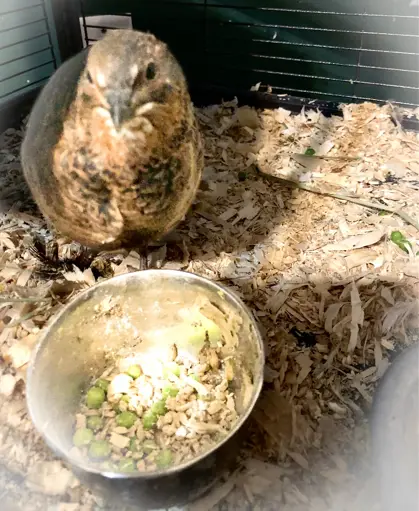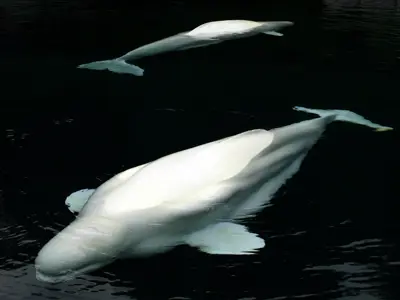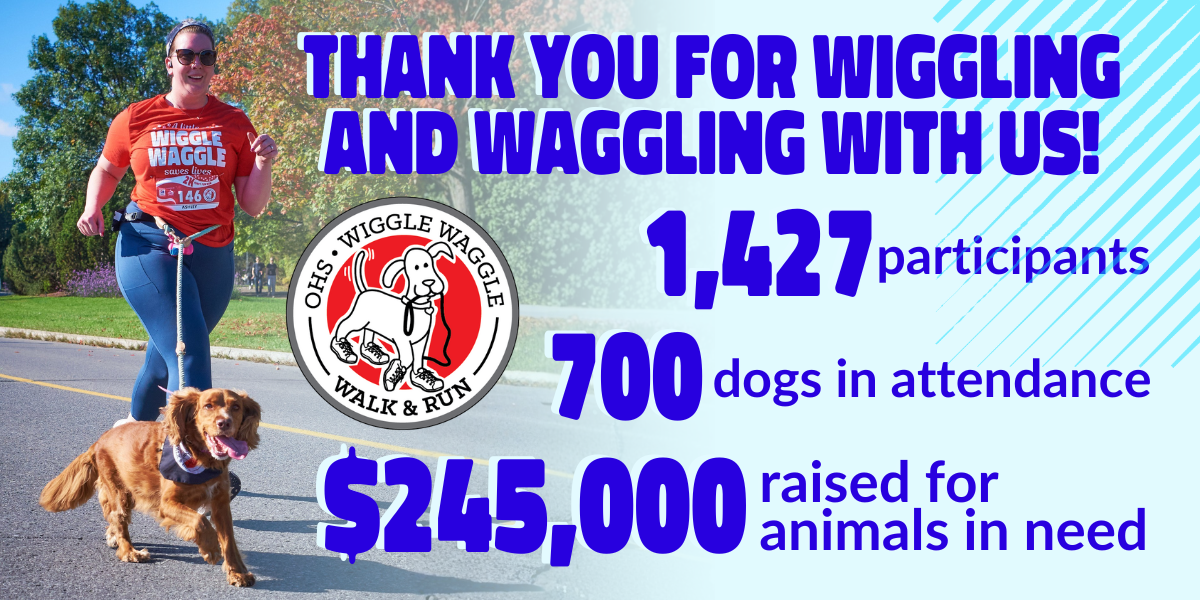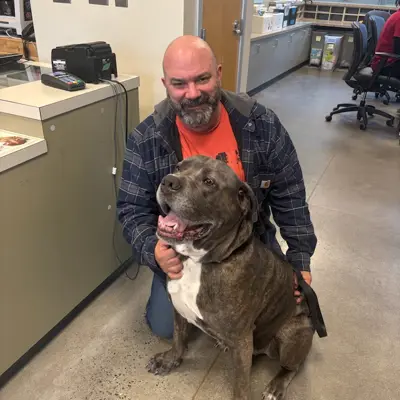Puppies Slip Through the Cracks
The OHS is urging Ontario to strengthen its puppy mill legislation. Last year, the provincial government passed PUPS, amendments to the PAWS legislation, aimed at ending puppy mills in the province of Ontario. The OHS identified gaps in the legislation that leave animals suffering — gaps that remain unaddressed to this day.
Ontario’s animals need help now, and the OHS has launched a petition to share the public’s view on animal suffering and call for an end to it. The OHS believes Ontario must:
1. Establish a breeder registry to ensure oversight, accountability and responsible breeding practices.
2. Require breeders to properly socialize puppies to ensure their physical, behavioural, and emotional well-being.
3. Provide transparent reporting where appropriate for animal welfare cases involving puppy mills to improve public trust in Ontario’s protections for animals.
The OHS believes that delays in acting are creating more suffering and eroding public trust.
Add your signature to the petition to show the government more must be done to protect Ontario’s puppies and their mothers from cruel breeding practices.
OHS Says “No More” to Community Cat Suffering
This month, the OHS led its first-ever Feral Cat Awareness Week, providing public awareness on the challenges facing feral cats in Ottawa, involving close to 20 teens in building outdoor shelter boxes for cats, and sterilizing and vaccinating 10 feral cats from a local colony. While a modest start, the OHS believes its efforts will go a long way to opening doors for the future.
“The community where the feral cats were sterilized is already asking for more,” said Sara Barnoski, OHS Manager: Advocacy. “Building bridges with communities in need is a great step forward to helping more cats.”
In the coming weeks, the OHS will work with the colony caretaker to sterilize the remaining cats in the colony, helping to prevent cat homelessness in Ottawa and slow the cycle of suffering for cats who are born outdoors.
“When people understand what’s going on, they can act compassionately and more feral cats will lead better lives,” said Barnoski.
It’s not only cats that benefit from these efforts. A recent study estimated that in Canada, cats kill approximately 60 million birds annually.
The OHS is building its support for community cats in different ways — from sterilizing feral cats, to rehoming cats through its Working Whiskers Cat Program — and by talking to communities about how best to help cats. With the support of Ottawa’s caring community, the OHS believes there can be an end to the cycle of suffering for Ottawa’s cats.
A Quail Saved Through Partnership
Last month, a quail was found wandering a Barrhaven neighbourhood. A caring member of the public brought the bird to the OHS for shelter and care. The OHS cannot adopt out quails and other farm animals, but by working with partner rescues, these animals can find a second chance.
The OHS assessed the quail to make sure he was healthy and prepared him for transfer to Penny Lane Farm Sanctuary. Penny Lane is one of the OHS’s vetted partner placement groups — when the OHS has farm animals that need a placement, the OHS is confident in Penny Lane’s ability to meet their needs and ensure they receive appropriate housing and care.
While Ottawa is fortunate to have many great groups working to protect animals, sadly not all are reputable. In fall 2024, troubling reports surfaced about mistreatment of animals and fraud at a rescue in the Ottawa Valley. Ultimately it was reports from the community that brought the issue to light — demonstrating the importance of community action and that oversight, accountability and an understanding of capacity for care are essential to helping animals in need.
Despite the doubts arising from this story, there are many rescue groups doing good, responsible work. The OHS partners with many of these groups to weave a stronger safety net for all animals and secure more second chances.
Wildlife and farm animals fall outside of the OHS’s capacity for care, but through the Partners in Placement (PiP) program, options are available for the animals. Some cats and dogs who have special needs that are beyond the OHS’s resources to support also find second chances through the OHS’s work with partners.
The OHS does its part, providing modest funding to agencies assuming placements and essential veterinary treatment to animals before transfer, and taking animals from partners for rapid adoption through the OHS’s robust adoption program. The OHS also organizes special, subsidized spay/neuter days for its partners and supports novel projects dedicated to broadening Ottawa’s safety net for animals through grant funding.
Expanding this Caring Network
Growing the OHS’s PiP network will help secure more second chances for animals of all shapes and sizes. If you are part of a rescue or know one that would like to partner with the OHS, reach out to interventionservices@ottawahumane.ca.
Whales in Crisis: Marineland
On Oct. 1, the federal government thankfully denied international transfer for the remaining 30 belugas at Marineland. The transfer would have seen the whales sold and shipped to a theme park in China. This decision was a victory for the animals, but the fate of the whales and the other animals held captive at the defunct Marineland still hangs in the balance.
Nova Scotia has taken a step forward for the whales, approving the lease of land to be used as a whale sanctuary. The sanctuary expects to be able to accommodate up to 10 whales and it will be some time before the facility is operational.
Marineland has threatened euthanasia of the 30 whales — a final callous act from a business built on the exploitation of animals.
Marineland reports that it costs two million dollars monthly to provide care to the remaining whales in Niagara Falls.
Experts share that the health of each individual animal must be considered. Travel may not be possible for every whale currently trapped at Marineland — Marineland’s transfer of five belugas to an aquarium in Connecticut resulted in three dying in two short years. While transfer may not be possible, allowing the whales to languish in woefully inadequate enclosures would be an act of cruelty.
The continued support and voices of animal advocates have gotten the whales this far. Tell the government that these are Canada’s whales and it is up to us to protect them and give them the happy ending they deserve.
Thank You for Supporting Ottawa's Animals!
